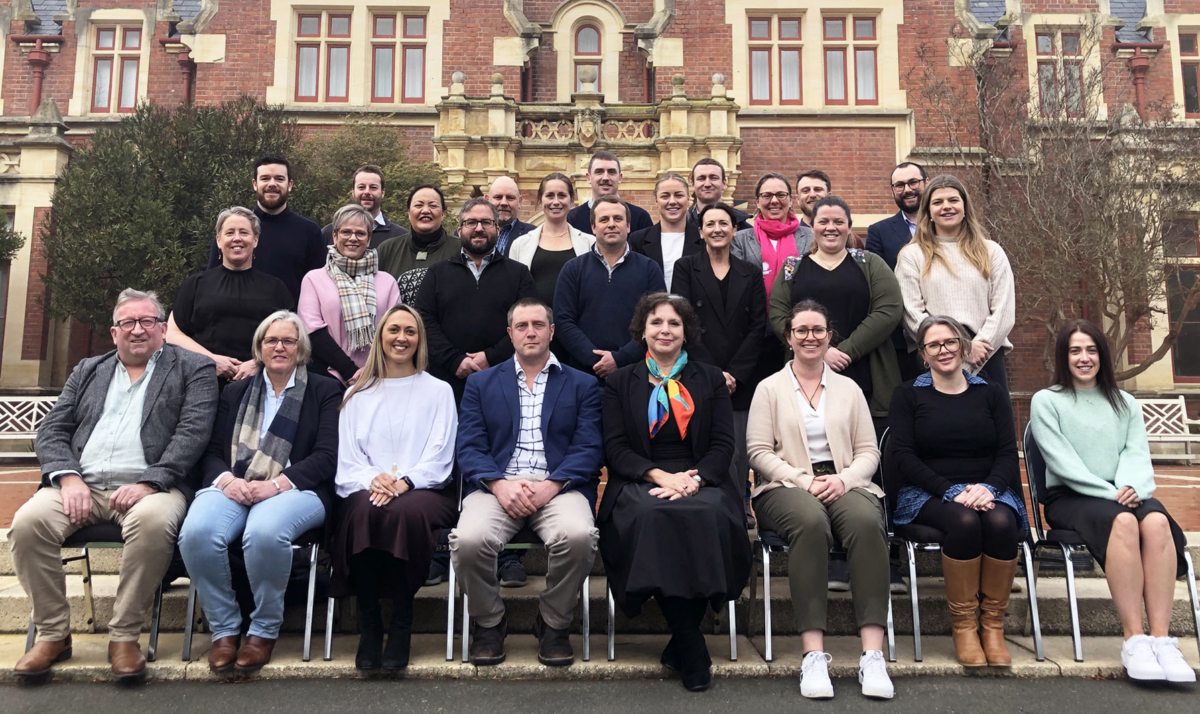
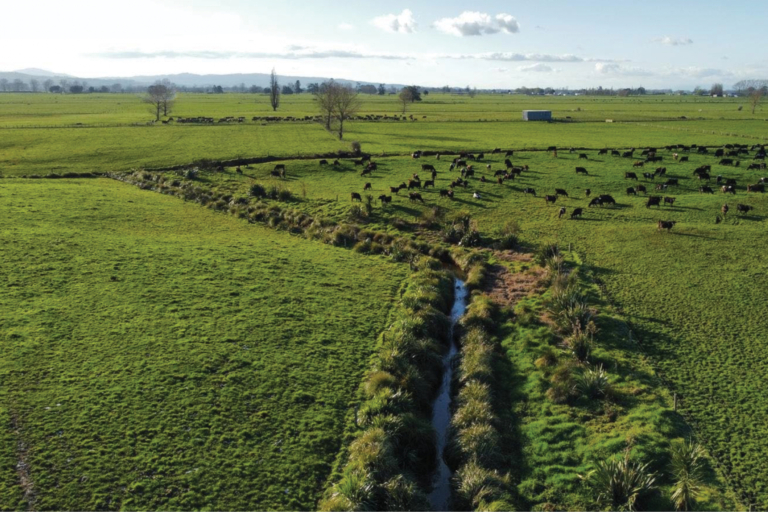
Balancing Profit and Environment: Insights From New Zealand’s Leading Dairy Farms
NZ dairy farmers prove profit and sustainability can align—pasture smart, cost-savvy, and values-led. A balance worth backing.
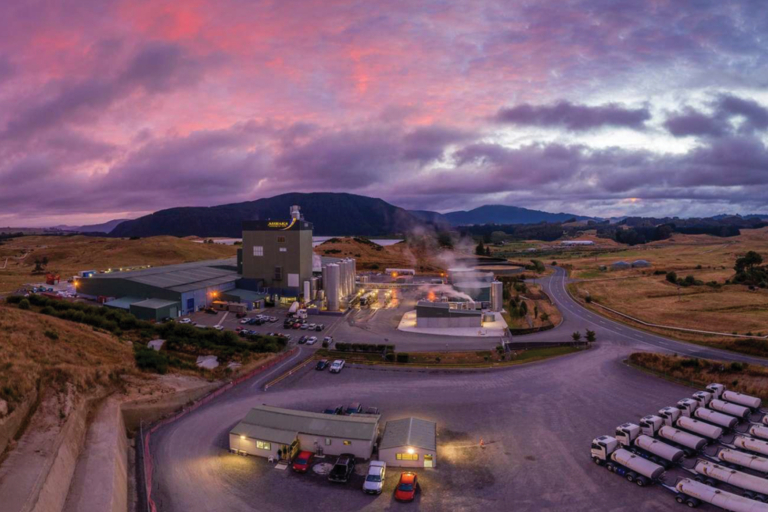
Building Diversity in New Zealand Dairy Export Markets for Independent Manufacturers
Malinda’s report examines how NZ’s independent dairy manufacturers can future-proof for financial sustainability amid a decreasing milk pool and global market shifts. It finds that success depends on strong value-chain relationships, targeting values-driven markets, and exploring alternative access strategies to overcome distance and risk.
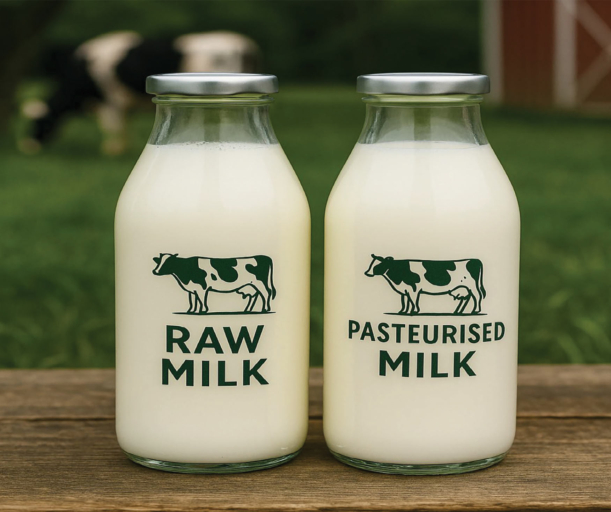
Dairy Diversification into Raw and Pasteurised Farm Milk Sales
This report explores the feasibility of NZ dairy farmers selling raw and pasteurised milk direct from the farm. It finds strong consumer interest and financial potential, but highlights significant regulatory, operational, and mindset challenges requiring targeted support and strategic planning.
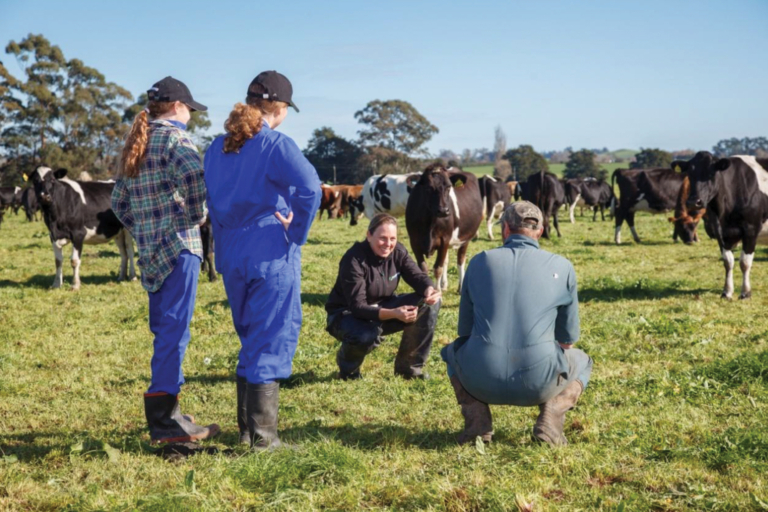
Dairy Farmer-Female Veterinary Adviser Relationships in New Zealand
This report by Katrina Roberts highlights that strong farmer-female veterinarian relationships improve advice uptake and farm outcomes. Findings emphasise personal connection, trust, communication, and shared growth. Veterinary businesses should support advisors through training, flexibility, and resources to foster thriving partnerships, especially in female-led advisory roles.

Dairy Farmers Love Sharing Data… But There is a ‘But’
This report explores how NZ dairy farmers approach on-farm data sharing amid regulatory pressures. Farmers are rational—sharing data when trust, control, and value are assured. The “make/save/comply” framework captures their motivations, stressing the need for ethical, transparent, and mutually beneficial data ecosystems.
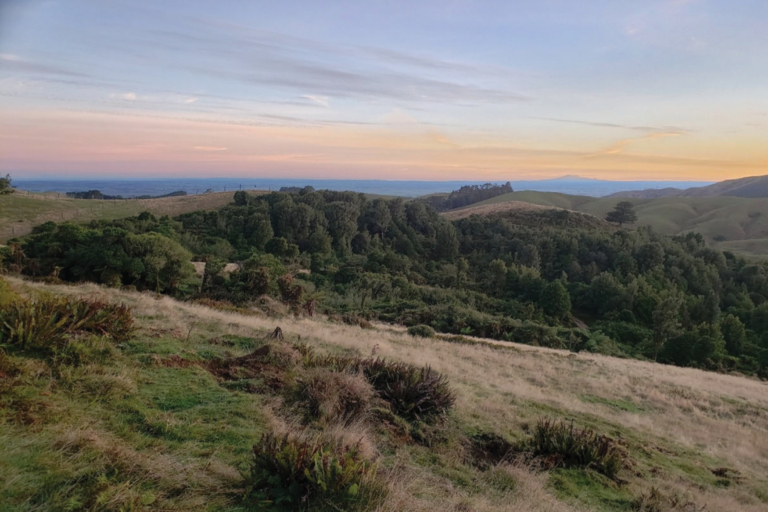
Evaluating the Potential of Increased Carbon Stocks and Biodiversity Outcomes to Fund Native Vegetation Management on NZ Properties
Cameron’s report examines whether monetised benefits from increased carbon sequestration or positive biodiversity outcomes could offset the costs of pest management and protection of native vegetation in NZ. The findings inform policy development for achieving national climate and biodiversity commitments.

Exploring the Future of Agritourism in New Zealand
Exploring agritourism as a way for farmers to boost resilience amid inflation, environmental pressure and price volatility through income diversification.

Factors Driving High Value Client Relationships: A Rural Banking Perspective
This report by Michele Findlay examines how rural managers build trusted, high-value relationships with clients in food and fibre. It identifies attributes, leadership practices, and organisational support for high performance, highlighting trust-building, technical and interpersonal skills, and proactive insight.

From Retention to Resilience: Strengthening MPI’s Veterinary Workforce
Veterinarians are vital to MPI’s export, biosecurity, and food safety systems. This research identifies key retention challenges and offers strategies to build a resilient, engaged veterinary workforce.

From Seed to Success: Transitioning Farm Ownership in New Zealand and The Ownership Equation: Exiting with Value. Entering with Vision.
This report explores NZ’s changing farm ownership landscape, noting declining traditional pathways, rising land costs, and limited capital access. Models like equity partnerships show promise. Strategic planning, mentorship, and coordinated action are needed to address a $110–$125 billion capital gap.
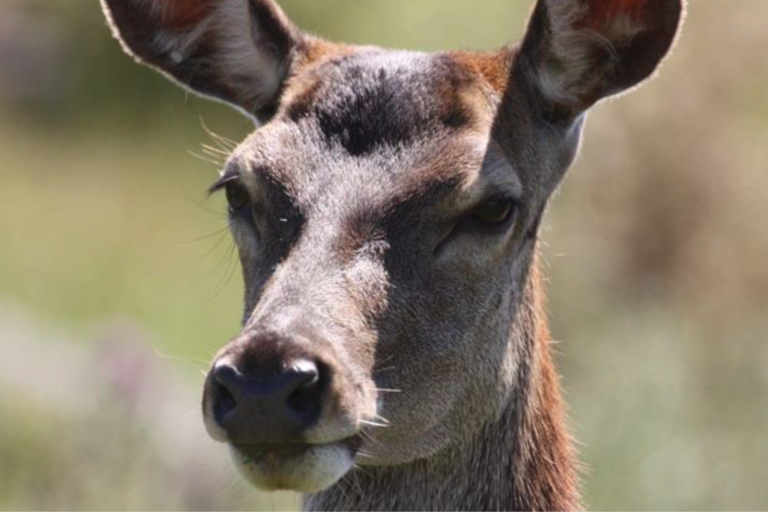
Guardians or Executioners – Navigating the Ethics of Deer Control
Phil’s report examines the expanding deer population across Aotearoa New Zealand, its ecological and economic impacts, the limitations of current management, and the ethical tensions surrounding lethal control, cultural values, and decision-making in deer management strategies.
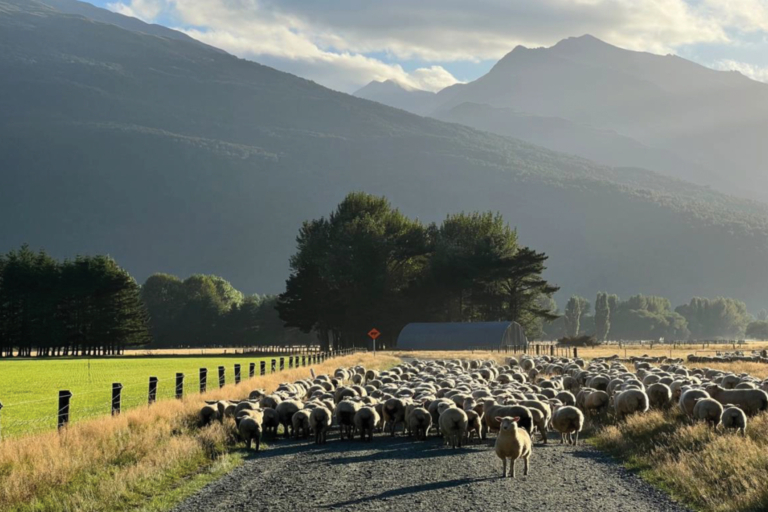
How can we Maximize Production in our Decreasing Ewe Flock?
This report by Matt Ward looks at boosting ewe flock productivity amid national decline by using terminal sires, better genetics, and more innovative flock strategies to sustain lamb output. The report states that passive adaptation is no longer enough—active change is essential.

How do we Develop Financial Literacy in Rural New Zealand?
This report by Morgan Jones tackles the financial literacy gap in rural NZ by exploring tailored, accessible education strategies for farmers, growers, and professionals.
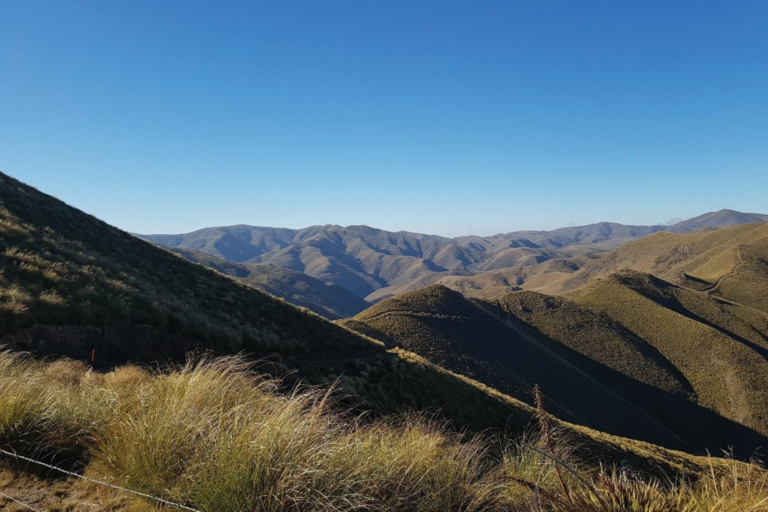
Leadership Qualities Needed for First-Time Managers
Leadership in NZ agriculture now values people management. This report conducted a study of farm leaders and found trust, empathy, and reflection are key traits, developed through experience and mentorship. This excellent report offers practical leadership insights for first-time managers.
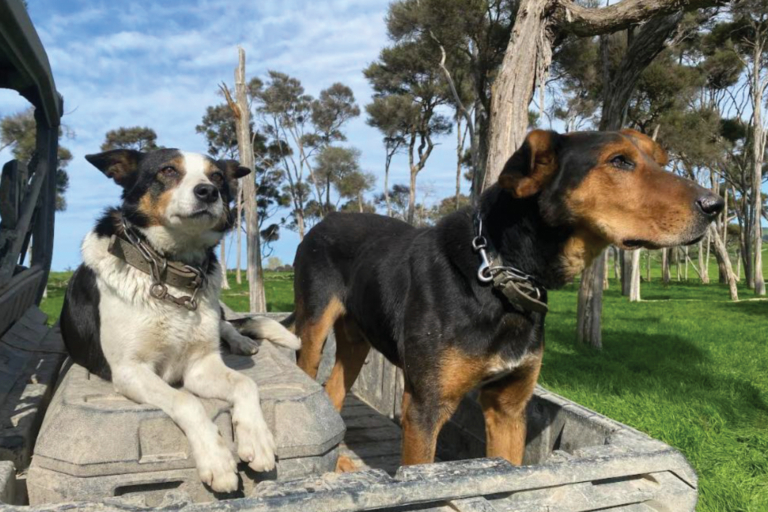
Navigating Sheep and Beef Manager Retention
This report by Richard Cameron identifies key challenges in attracting and retaining skilled farm managers, including low wages, poor work-life balance, and limited ownership pathways. It explores equity partnership models, presents a successful case study, and offers recommendations for sustainable industry solutions.
Partnerships within the Food and Fiber Sector: Do They Return Value to The Farm Gate?
This research examines NZ horticulture’s views on soil health and explores opportunities to elevate it as a key measure of sustainability.
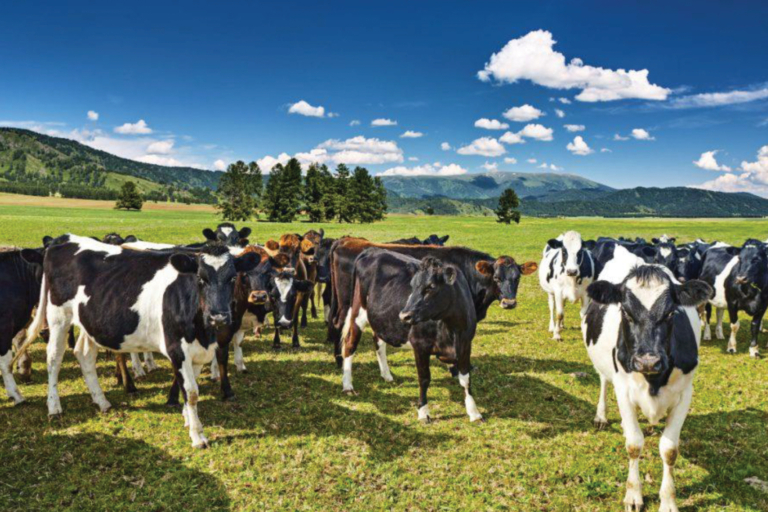
Smart Nutrition, Stronger Herds: A Holistic Approach to Dairy Excellence
This report highlights the underutilised role of nutrition in New Zealand’s dairy sector.
It identifies gaps in training, technology use, and knowledge integration. Key recommendations include standardised education, data-informed practices, cross-sector collaboration, and a systems-thinking approach, sustainability, and long-term farm success.

Softer Crop Protection, the Way of the Future?
This report explores integrating biopesticides and IPM in NZ horticulture. Barriers include limited knowledge, resistance to change, and outdated regulations. Recommendations highlight education, expert collaboration, and technology use to support adoption and meet export demands sustainably.
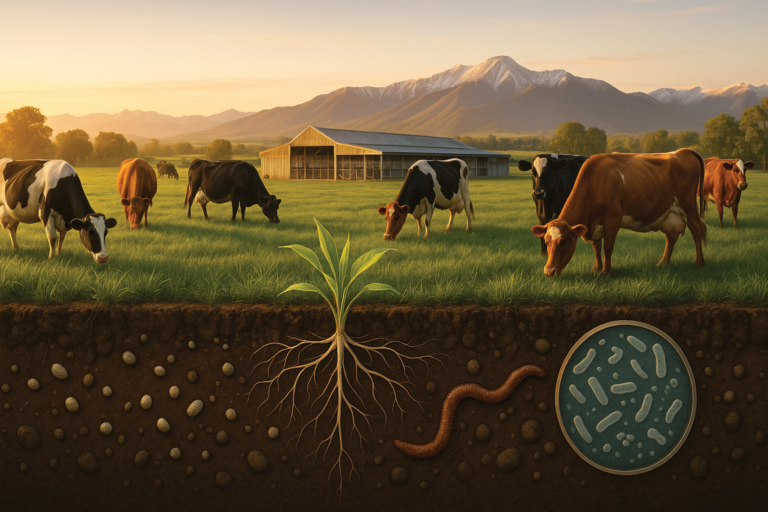
The Soils Gap: Interactions Between Science, Commerce and Culture
Soil lays the foundation of all farming productivity. Farmers’ soil management is influenced by multiple factors, especially scientific perceptions. Studies on soil function and productivity are limited or non-existent. This paper highlights farmers’ views, challenges, and the drivers behind their perceptions and management practices.

Water quality in the Amuri Basin
This report seeks to gain understanding of farmer water quality perspectives in the Amuri Basin and what factors in their farming systems they were prepared to adopt to achieve better water quality outcomes, along with identifying what the barriers to implementation are.


























